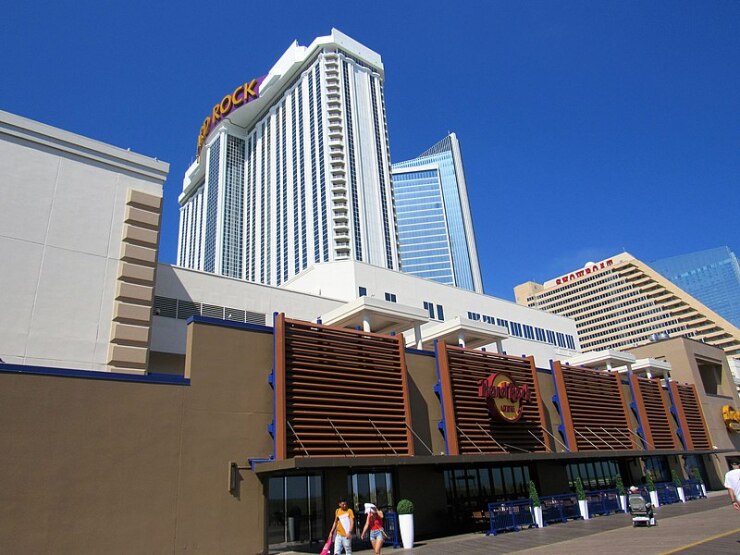An unexpected tax appeal settlement with Atlantic City's Hard Rock Hotel & Casino will steer financial resources away from recovery efforts in the Jersey Shore gambling hub, according to Moody’s Investors Service.
The agreement announced in late January covers tax payments for the period between when the former Trump Taj Mahal closed in 2016 and the casino property’s purchase by Hard Rock in 2017.

Under settlement terms, the city will pay four annual installments of $1.24 million starting in the 2010 fiscal year. Moody’s analyst Douglas Goldmacher noted in a Jan. 7 report that while Atlantic City set up a tax appeal reserve that had $17.4 million as of 2017, the funds set aside prevent it from tackling other fiscal obligations.
“The settlement is a credit negative for Atlantic City because it diverts financial resources from other operations, although the amount is fairly modest, covered by a designated reserve and poses a minimal threat to the city's still-precarious financial position,” said Goldmacher wrote. “The settlement should not have the devastating tax base impact on Atlantic City of previous appeals.”
Atlantic City has faced state intervention since November 2016 after it nearly defaulted on its debt. Goldmacher noted that the Hard Rock settlement took Atlantic City and New Jersey by surprise since they had maintained that all casino appeals had been completed through an $80 million
“Because of the timing of Hard Rock’s purchase of the property and the work that needed to be done to get the casino into the PILOT, the 2017 appeal was not able to be included in the $80 million bond ordinance the city approved in August 2017 to fund other property tax appeals,” said Ryan.
Goldmacher noted that Atlantic City and New Jersey planned for the possibility of paying a nearly $5 million tax settlement by setting up a reserve fund. The city is now planning for a large number of more “routine” tax appeals, but none of the magnitude of Taj Mahal are expected. There are no remaining tax appeals for any of the city’s casino properties, according to Ryan.
Moody’s upgraded Atlantic City general obligation bonds
Atlantic County will pay out four $92,000 payments starting in 2020 for its share of the Taj Mahal payments. Moody’s rates Atlantic County debt at Aa2 with a stable outlook.





